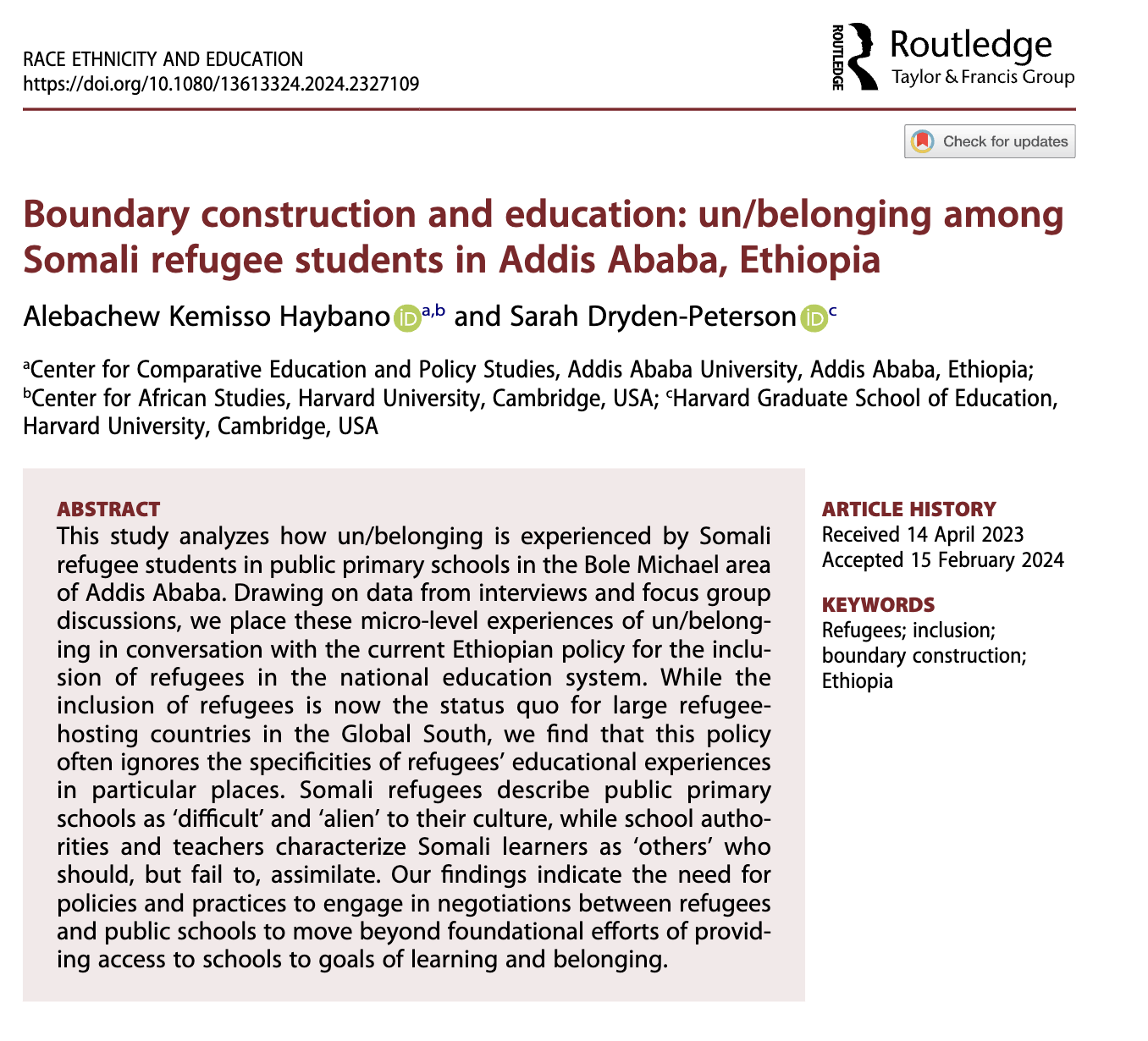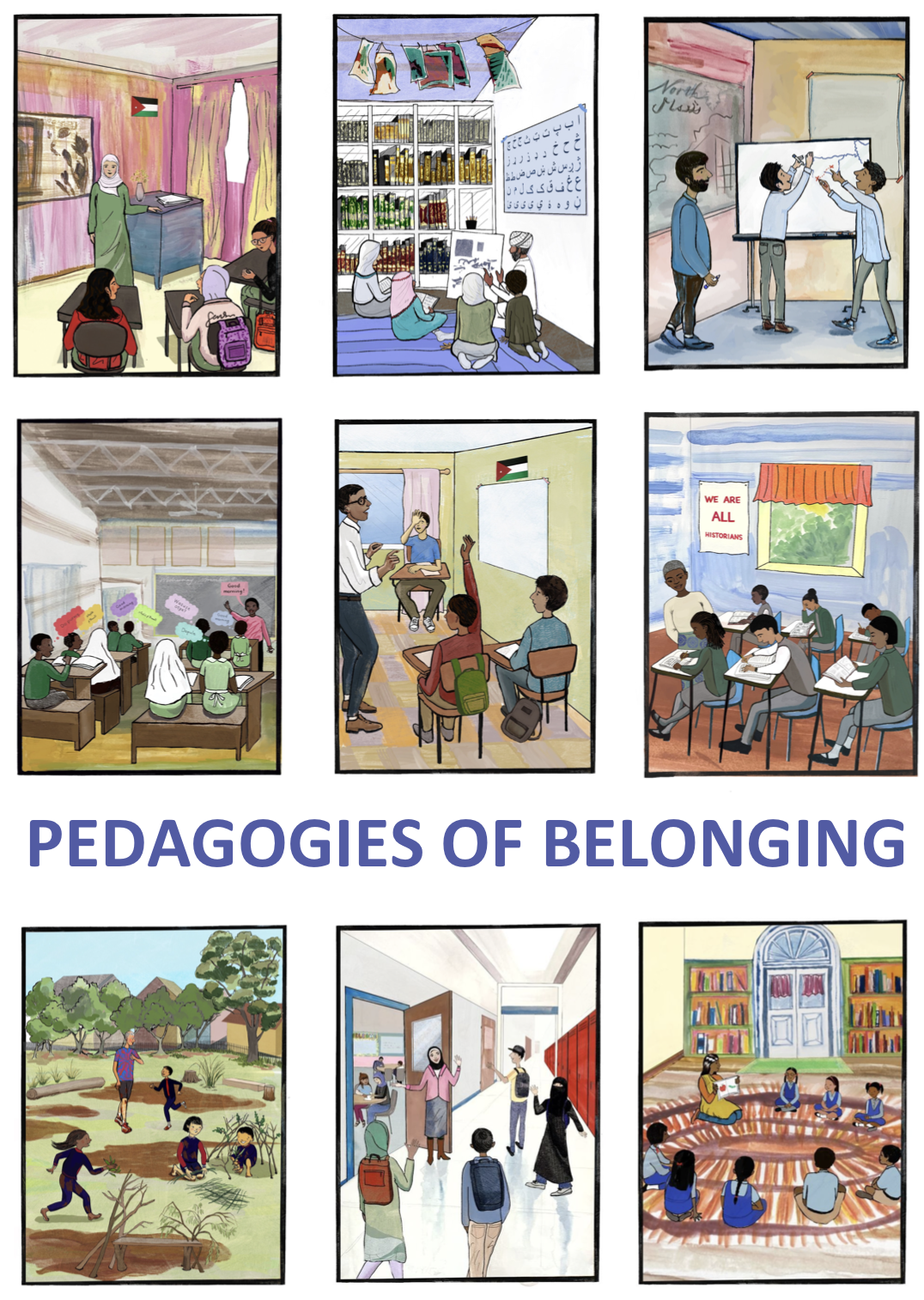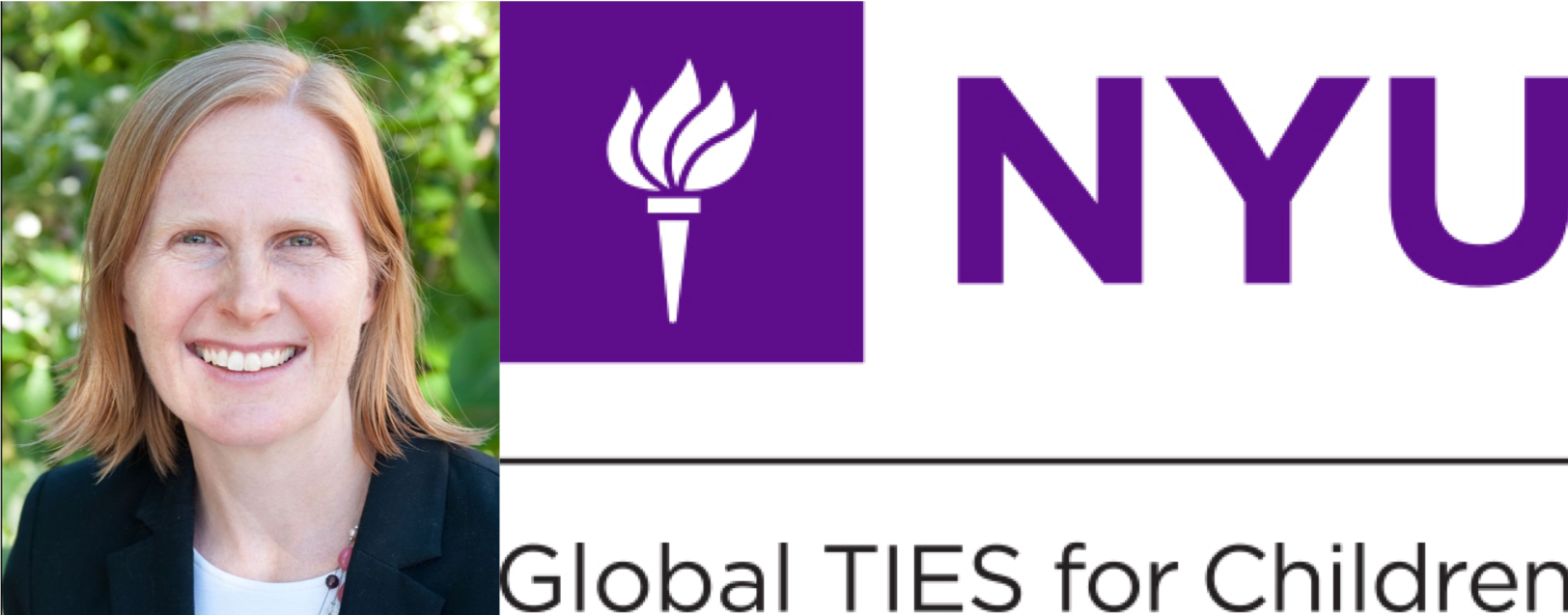The Missing Colors is a picture book sharing the story of Putra, a child who is feeling grey (and depicted as being grey), while all of the other children around him are bright colors. This story explores belonging, friendship, and taking care of ourselves and one another.
Read MoreResearch | This article examines why and how teachers of refugees enact protection by engaging with local forms of harm facing their refugee students. Through portraits of two classrooms in Jordan, we describe the relationships that form between Jordanian teachers and Syrian students, and the protection practices teachers develop in response. We propose a more comprehensive conceptualization of protection in refugee education that layers socio-political protection on legal and rights-based protection commonly embedded in humanitarian activities.
Read MoreArticle | Refugee REACH director Sarah Dryden-Peterson examines lessons from the field of refugee education for times of uncertainty, including current and future pandemics. She outlines three elements of “pedagogies of belonging:” pedagogies of predictability, adaptability, and future-building.
Read MoreArticle | There is a gap between the futures that refugee young people imagine will be possible through their education and the plausible futures in exile, where opportunities are truncated by social, economic, and political exclusions. Our study examines how education can narrow this gap. Through interviews with Syrian students in Lebanon, we document fixed and malleable elements of education that refugee students identify as bridging their current education and their futures. Students experience the structures and content of schooling in Lebanon as both exclusionary and immutable, yet their teachers use what we call relational pedagogies rooted in predictability, explaining, fairness, and care to support students’ learning and navigation toward future opportunities.
Read MoreArticle | Limitations on membership and participation in host societies sharply constrain refugee young people’s civic development. Especially when refugees attend national schools, they find themselves submerged in civic learning that does not include them or represent their experiences and realities. To explore possibilities for civic learning among refugees, we examine the education created by a Syrian community inside the structures of a Lebanese private school in Beirut. We conceive of this school as a ‘borderlands’ and find that it supports civic membership and participation in three ways: through adaptations to the Lebanese structures, curricula, and languages of schooling; through pedagogies focused on pragmatism; and through opening limited spaces for students to practice civic skills. We argue that the borderlands space created by this school holds lessons for both refugee and national teachers and school systems seeking to foster civic learning among refugees.
Read MoreArticle | Education is one of the key tools of nation-building, as it aims to create future citizens. Yet what happens in seemingly ‘futureless’ contexts where refugees cannot access even social membership, let alone legal citizenship? In this introduction to our special issue on education for refugees, we explore the aspirations and conceptions of possible futures that students, teachers, governments, international non-governmental organizations (INGOs), and funders have when they promote and pursue education as the solution to the liminal position that refugees in protracted refugee situations find themselves in. Based on insights from the articles, we analyse disconnects between aspirations for education and realities of access to quality education and to opportunities after completing education. We argue that to address these disconnects requires us to move beyond temporal and spatial binaries—present vs. future, here vs. there—that are so common in refugee education discourse and policy. Our suggestion is to draw on and support stakeholders’ work, powerfully exemplified in this special issue, to contribute to improved conditions through pedagogies, practices, and policies that address these binaries.
Read MoreArticle | This study analyzes how un/belonging is experienced by Somali refugee students in public primary schools in the Bole Michael area of Addis Ababa. Drawing on data from interviews and focus group discussions, we place these micro-level experiences of un/belonging in conversation with the current Ethiopian policy for the inclusion of refugees in the national education system. While the inclusion of refugees is now the status quo for large refugee-hosting countries in the Global South, we find that this policy often ignores the specificities of refugees’ educational experiences in particular places. Somali refugees describe public primary schools as ‘difficult’ and ‘alien’ to their culture, while school authorities and teachers characterize Somali learners as ‘others’ who should, but fail to, assimilate. Our findings indicate the need for policies and practices to engage in negotiations between refugees and public schools to move beyond foundational efforts of providing access to schools to goals of learning and belonging.
Read MoreResource | Refugee Stories: Education: Obstacles and Aspirations draws on findings from a doctoral research on young refugees’ educational experiences in England. The study investigated how young refugee people and their families have encountered the education system while considering the implications of living as refugees in England. Young refugee people’s right to education is enshrined in British law; however, the UK has no specific educational policy for them.Invisibilizing practices add to the silence around their experiences and needs. Refugee Stories tells young refugees’ and families’ stories to amplify their voices and shine a light on the social and material conditions they experience.
Read MoreResource | Pedagogies of Belonging: Educators Building Welcoming Communities in Settings of Conflict & Migration is a book is about educators, and for educators, and the practices they have developed to create welcoming communities in settings of migration. Each page of the book is a “microportrait” of one educator who we have come to know by spending time in their classroom and school. We learn from educators how they build welcoming communities, how they create space for dissent, for dialogue, for trust, for new identities, for future-building, and how they envision and build newly imagined communities.
Read MoreResource | This new resource is for educators who seek to know about their Afghan students’ experiences to better support them. The resource highlights three central elements that can cultivate trust: Safe classrooms, Community connections, and Quality learning. It ends with suggested questions for educators to facilitate conversations about each of the three elements of trust with students, families, and community leaders.
Read MoreVideo | Refugee REACH director Sarah Dryden-Peterson delivers a lecture titled Refugee Education: Power, Purposes, and Pedagogies Across Contexts, hosted by NYU’s Global TIES for Children.
Read MoreVideo | New animation and research by the Refugee REACH team examines pedagogies of care and belonging in refugee contexts. Research included 8 months of observations in public and private schools in Lebanon and over 100 hours of interviews with Syrian Grade 9 students, their teachers, and families.
Read MoreVideo | New animation and research by the Refugee REACH team examines pedagogies of care and belonging in refugee contexts. Research included 8 months of observations in public and private schools in Lebanon and over 100 hours of interviews with Syrian Grade 9 students, their teachers, and families.
Read MoreArticle | Refugee REACH director Sarah Dryden-Peterson discusses two mobilities that emerge through her team’s work on refugee education: cognitive mobility and temporal mobility. These have broad relevance for what, how, and why children and young people learn, including as related to language in education.
Read MoreVideo | ‘Coffee & Chat’ with Refugee REACH director Sarah Dryden-Peterson focusing on refugee education in Europe and North America, hosted by the SIRIUS Policy Network.
Read More












